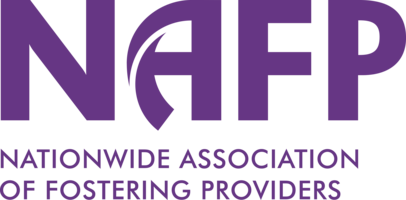I have spoken to lots of members over the Covid period in relation to carrying out this important function virtually. We have also discussed this in more detail in our previous short conferences. There are clearly lots of positives in how we have learned to adapt to the virtual world, and now the initial anxiety of logging on, inviting carers into the “waiting room”, learning to mute and un-mute (I still forget to do this), this all seems a distant memory.
We have undoubtedly become more efficient in how we manage virtually, but in this blog, I wanted to discuss when may be the best circumstances for a virtual panel and when not. Does it have to be “one size fits all”? An Ofsted inspector said this to me a few weeks ago as we were discussing how Ofsted would perceive a decision to amend policy to say that as an organisation you operate panels virtually.
There is nothing in the fostering regulations that say you can’t operate in this way, but do you want to? Is there value in seeing people face to face? Doesn’t this provide us with a sense of who they are? A connection? The non-verbal cues are pretty powerful and being with people, being able to put them at ease is how we can discuss sensitive areas. I talked with a panel chair and she said, “We also have to be mindful to convey thanks, warmth, emotions as the virtual platforms can sometimes suck this out of you, compared to a face-to-face meeting.” Another chair agreed, saying “Panel members feel they don't get as good a sense of people when not seeing them in person”.
It is very important that the fostering service recognises when it would not be the best approach, for example, sometimes agencies report that carers can be a little avoidant, cancel supervisions, fail to attend training and there is a level of disguised compliance. I am sure that virtual panels would suit them, but the agency must consider whether being face to face is the better option as it is likely that information needs further exploration and challenge, that is the panel’s role, right? To ensure practice and policy is safe for children and be a quality assurance role. Our members reported times they would not prefer a virtual panel were:
- Where an application has many questions, or need to explore the information
- Where carers have had a difficult review period
- When considering de-registration
So, we must think about how to continue to overcome these challenges, and as our inspector reminded me, it is important that we do not have “one size fits all”. We must consider exceptions, risk assess, and evidence decision making, show your creativity, how you think outside the box, adapt, without compromising on safety, risk, inclusion and respect for the process or those attending, “put yourself in their shoes”.
Saying this, the messages I am receiving are that virtual panels have worked, that it has enabled more flexibility in ensuring carers attend panels. It has enabled carers who work to be able to participate, especially when there is a short and positive review where a carer may have travelled an hour or so for their less than 30 minutes in panel, and of course the commute for members also may be long and being able to meet virtually has brought more people together to offer a more rich and diverse experience of membership to forums, meetings and training. But equally, carers have talked about how the face to face panel experience has made them feel “special”, given them an opportunity to show off a little all the amazing things they have done for children in the previous year, and be met and greeted. Talking to the inspector about foster carers, we agreed about relationships and part of that connection with carers to the agency is about being with people, being together to think things through, and virtual meetings should never compromise the carers involvement. He was very clear that inspectors would be curious!
We may need to ask ourselves, for who’s convenience will we choose to carry out practice virtually? The inspector when chatting with me was clear they are interested in the impact of Covid, the way we have adapted to ensure we can carry out our functions safely and he felt that during an inspection it was reasonable for an inspector to ask what difference our decision making has made to children and carers, he said “convince us and yourselves” that this is the best course of action.
Is this the right time to be rigid in decision making? Maybe it’s a little too soon to tell? Are we considering different types of applicants to foster, differing motivations and reasons and why is it now the right time for them to embark on this life-changing experience? We have had to divert from usual practice and we need to ensure we have proper oversight, and an understanding of the impact on children, their families and foster families. There is already flexibility, so as long as you evidence management oversight in how your policy is implemented, then we can do both, right?
I recently asked our members about what had worked well in relation to virtual panels, there were many positive responses and definitely an abundance of creativity and growing confidence in the virtual world. Many agreed that Panel sessions were consistently quorate due to elimination of travel requirements through virtual sessions and how Virtual fostering panels have worked well when the panel is well established and the cases are less complex.
At NAFP, we have a growing interest and attendance in our members' panel chairs/vice-chairs Google Group. We are beginning to talk less on the way we conduct panel and more in relation to the themes, common challenges most independent panels seem to face virtually or face to face. The role of a fostering panel is an important one. What can be more important than recommending whether someone is given the opportunity to care for someone else's child safely? This is a privilege. To achieve this, panel members need to be robust, curious and enabled to have in-depth discussions supported through the leadership of the panel chair.
In our forthcoming conference, NAFP will be inviting participants to join workshops where, together, we will explore:
- Ensuring the agency is compliant and robust – an opportunity to consider how references and checks are considered in the approval and ongoing approval process, including the medical process
- Recommending terms of approval – what do panel members require to make fully informed recommendations with reasons and ensure that carers terms are reflective of the carers skills, abilities and availability
- Allegations – panel’s role following allegations made against foster carers, including standards of care concerns and how panel are important in the quality assurance process
- The role of the agency – an opportunity to consider how the panel work independently but alongside the Panel Advisor and Agency Decision Maker to have a mutual learning experience, and how one informs the other






